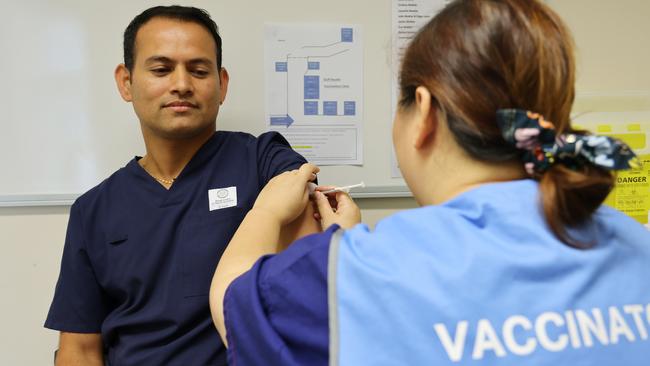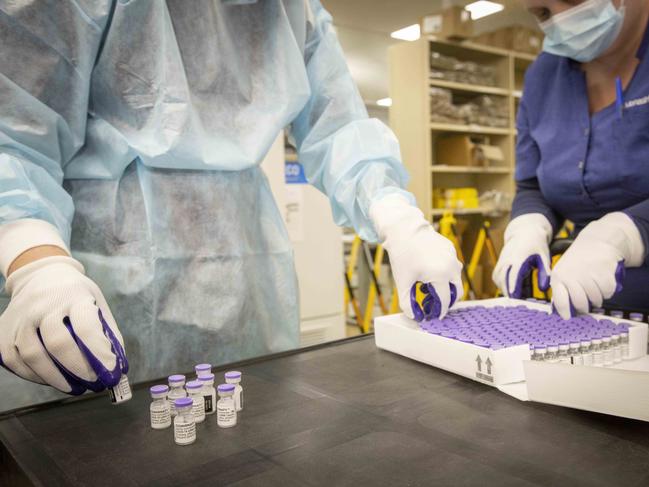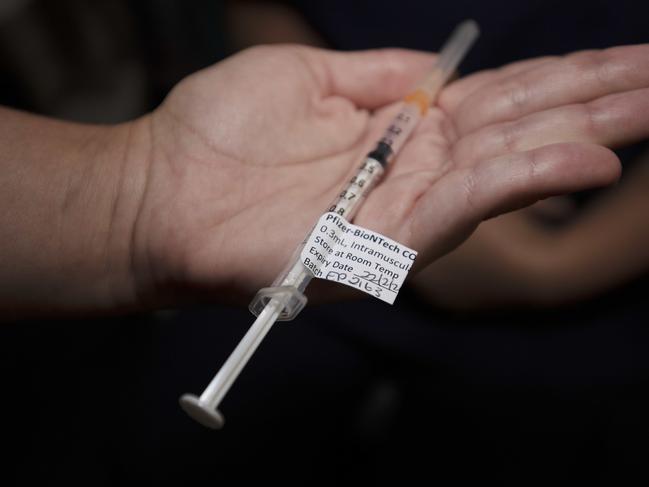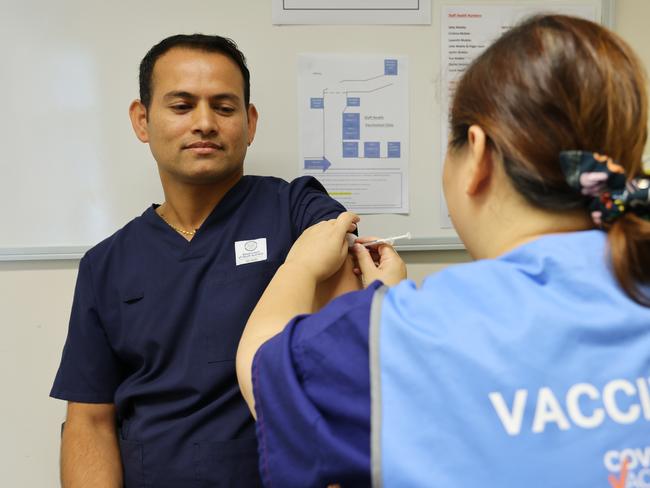Proposal for SA manufacturing facility to mass produce Pfizer and Moderna vaccines
Australia could see more COVID-19 vaccines distributed if a proposal to produce Pfizer and Moderna jabs in one state is approved.

Much needed Pfizer and Moderna vaccines to better protect Australians from COVID-19 could be developed in South Australia.
A locally advanced manufacturing facility in Thebarton, in Adelaide’s inner west, has the capacity to mass produce the mRNA vaccines within 12 months.
For more than 35 years, the 4600 sqm plant was previously used for microbial fermentation by American pharmaceutical companies Pfizer and Hospira.
The initiative would run in partnership with biotech giant BioCina, the University of Adelaide and the SA Health and Medical Research Institute.
The Commonwealth will need to approve the plan for it to go ahead.

BioCina purchased the Pfizer biologics manufacturing plant last August.
Its CEO Ian Wisenberg said it was the most advanced facility of its kind in Australia and the only one approved by the US-FDA.
Between the three parties involved, he said the state had the needed elements to begin production “in the short term”.
“We have a state-of-the-art facility that, with reasonable financial support from government to add key capabilities and expand capacity, can within months be producing key ‘ingredients’ of mRNA COVID-19 vaccines to address the current global shortage,” Mr Wisenberg said.

The University of Adelaide’s Deputy Vice-Chancellor Professor Anton Middelberg said SA would play a key role in accelerating the nation’s COVID-19 vaccination program.
Premier Steven Marshall said he spoke with Federal Health Minister Greg Hunt about the facility but could not say if the federal government would invest in the project.
He said he believed the proposal — introduced about four weeks ago — was a “great opportunity” for local jobs as well as ensuring the nation had effective capability to manufacture vaccinations in future.
“I’m hopeful the federal government will look favourably at working with us to scale up this opportunity,” Mr Marshall said.
“We’d be naive to think this (a global pandemic) wouldn’t happen again in future so having these capabilities, so that we’re not dependant on vaccines coming from overseas, would be very helpful going forward.”

Last month, the Victorian government announced it would fund $50 million into mRNA COVID-19 vaccine production to kickstart domestic manufacturing.
At the time, acting Premier James Merlino said it would take at least a year for the vaccines to be made.
Prime Minister Scott Morrison welcomed the announcement and said the Commonwealth would look into what support they could offer.
Australia currently only has the ability to manufacture the AstraZeneca vaccine domestically, with 50 million doses to be produced by CSL in Melbourne.


